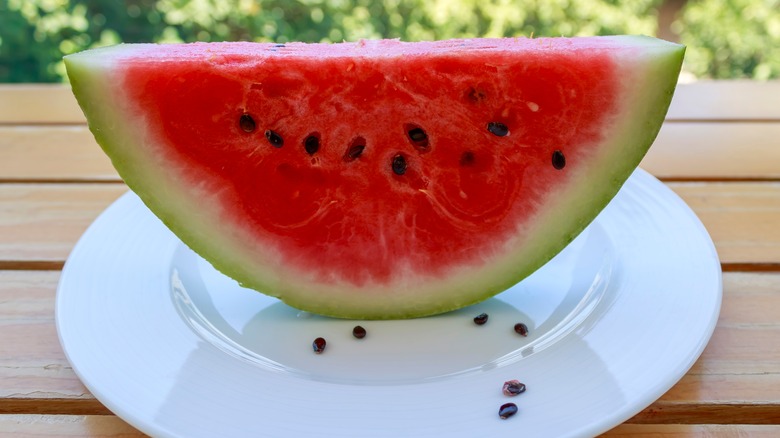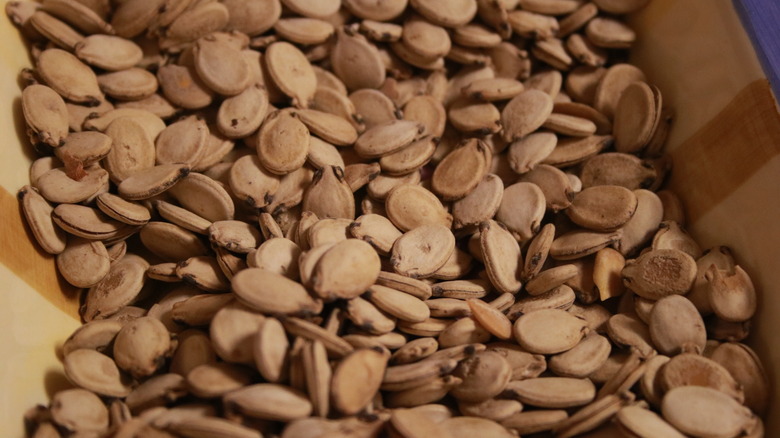Can Eating Watermelon Seeds Make You Sick?
Ask anyone who's ever swallowed a watermelon seed and it's a pretty sure bet they will confirm there is not now, nor has there ever been, a watermelon growing in their stomach. No one knows where these tall tales originate, but the ones that stick — like the one about eating a watermelon seed and having a watermelon sprout in your belly — have staying power. Even as adults, when we know better, there's still a little "what if" voice whispering in the back of our consciousness every time we bite into a juicy slice of watermelon.
So let's put this legend to rest once and for all. If you swallow a watermelon seed, it will not take root in your gut. Simply put, the human digestive system is not a friendly place for a stray watermelon seed, per RedOrbit. Flash back to grade school science lessons. Remember? Seeds need the perfect combination of temperature, water, and location to germinate. The human stomach is dark and it's filled with various acids and enzymes — components designed to break down food, not nurture it.
That poor watermelon seed you inadvertently swallowed; it's doomed to pass unheralded through your digestive system and end up ... well, you know the rest of the story. But if watermelon seeds won't grow in your tummy, can eating them make you sick?
Watermelon seeds are actually good for you
Here's a tidbit sure to turn every watermelon seed legend you've ever heard upside down. Not only are watermelon seeds not bad for you, they're actually chock-full of good stuff. In fact, they rank among the world's most nutrient-packed seeds, per NDTV.
That's especially true of the black seeds found in seeded watermelon. According to Organic Facts, they are an excellent source of nutrients and antioxidants, including protein and amino acids. They're also packed with B vitamins, magnesium, zinc, copper, potassium, manganese, and iron, in addition to omega-3 and omega-6 fatty acids. Benefits of the power-packed seeds include support for healthy hair and skin. They've been tied to increased energy, lower blood pressure, lower cholesterol levels, and regulating blood sugar levels.
Sounds like a superfood, but can you have too much of a good thing? Apparently, that's not a concern. According to Organic Facts, experts deem the human consumption of watermelon seeds doesn't pose any significant health risk, regardless of quantity consumed. Do they taste good? Meh. Raw seeds are kind of flavorless, but with a little preparation, they make a pretty darn good snack. The Kitchn recommends roasting raw watermelon seeds; just spread the seeds on a baking sheet and roast at 325°F for about 15 minutes until they are crispy, then toss with a touch of olive oil and a bit of sea salt. This method slightly compromises the nutritional value of the seeds, but it's simple and tasty.

